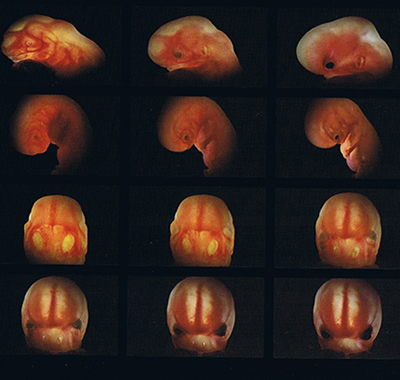Your Baby Development: 18 Weeks Old
How big is your baby? This week your baby will be weighing around 13 1/2 pounds and measuring 24 1/2 inches if he/she was of average size at birth. Your baby may begin teething now, and signs that this may be beginning are baby pulling at his/her jaw or ear, drools or acts fussy for no apparent reason. Because symptoms are often the same it may be difficult to decide whether he/she has earache or is teething. If you are unsure then you can rub baby’s gums, he/she will let you know if it is saw. Your baby is probably warming up for crawling. When he/she is lying on his/her stomach, he/she will lift his/her head, as well as make swimming motions with the arms. Kicking an bouncing will strengthen leg muscles and the arm motions will develop arm muscles. As your baby’s back and neck muscles get stronger he/she will be much steadier when sitting, although he/she will still need support when sitting. Baby will be able to sit supported for longer periods as well. Baby will love to listen to music and speech, and he/she can now respond to every sound made in any language in the world! Baby will make many noises, either in entertaining him/herself or in response to something which has happened around him/her. When baby “talks” his/her speech may have some inflections and intonations of speech. You may hear some of his/her “talk” ending in a high note, as if asking a question.Baby Development Milestones This Week
Physical Development
- May make swimming motions
- May be ready to start solid foods
- Distinguishes among smells
- May hold object between index and second fingers
Mental & Social Development
- Has responsive periods of 1 hour or more
- Interested in making new sounds
- Laughs when playing
- May cry if playing is disrupted
- May interrupt feedings with play
- Controls neck
- Sits up with support
- Has doubled his/her birth weight
- Shows when he/she is full
- Shows interest in food when you eat
- Mimics you when you eat
- Indicates his/her wants by reaching or leaning towards something
- Seems hungry for food more often
- Be bale to move tongue back and forth
- Weight loss or slow weight gain after adding cereal to diet
- Loss of appetite
- Diarrhea
- Foul smelling stools
- Frequent gas
- Swollen abdomen
- Abdominal pain
- Mouth Ulcers
- Baby’s skin is pale in color
- Tendency to bleed easily
- Failure to Thrive
To prevent accidents and choking problems, never leave baby alone while he/she eats
Baby Week18


